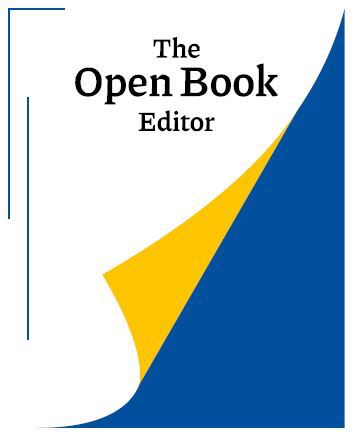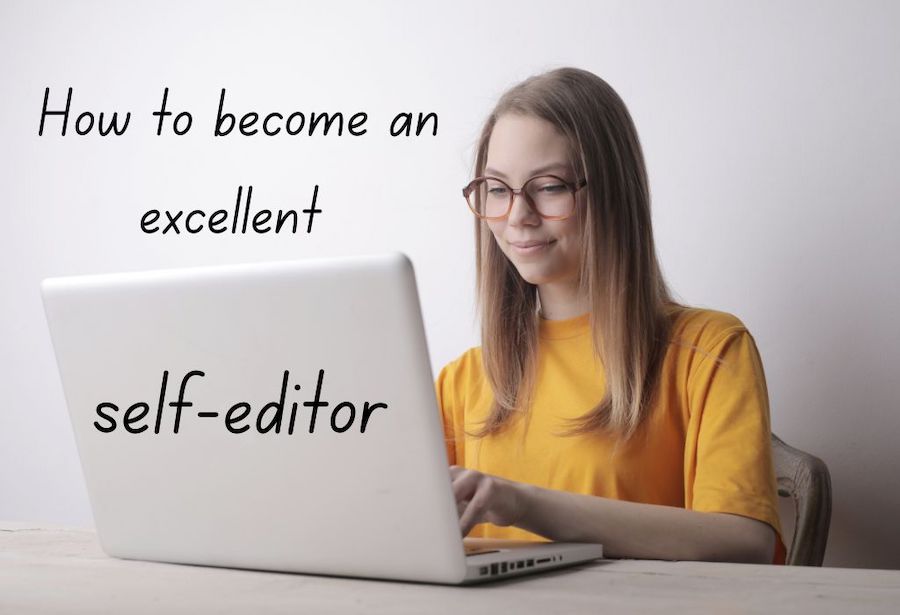Whether you’re looking to self-publish or pursue traditional or hybrid publishing, every author should know how to be an excellent self-editor. It can be tempting to rely on someone (or something) else to do it for you. However, not only does AI not measure up to a human book editor, but it’s important as a writer to develop your self-editing skills. If you become too dependent on others to clean up your manuscript for you, there may be a day when you won’t have that buffer, and you’ll struggle to know how to edit your own book.
Besides, by learning to self-edit, you will teach yourself more about the writing process. Not only will you become a better writer, but you’ll save yourself time self-editing in the future.
But how do you become an excellent self-editor? Here are 7 steps to get you started!
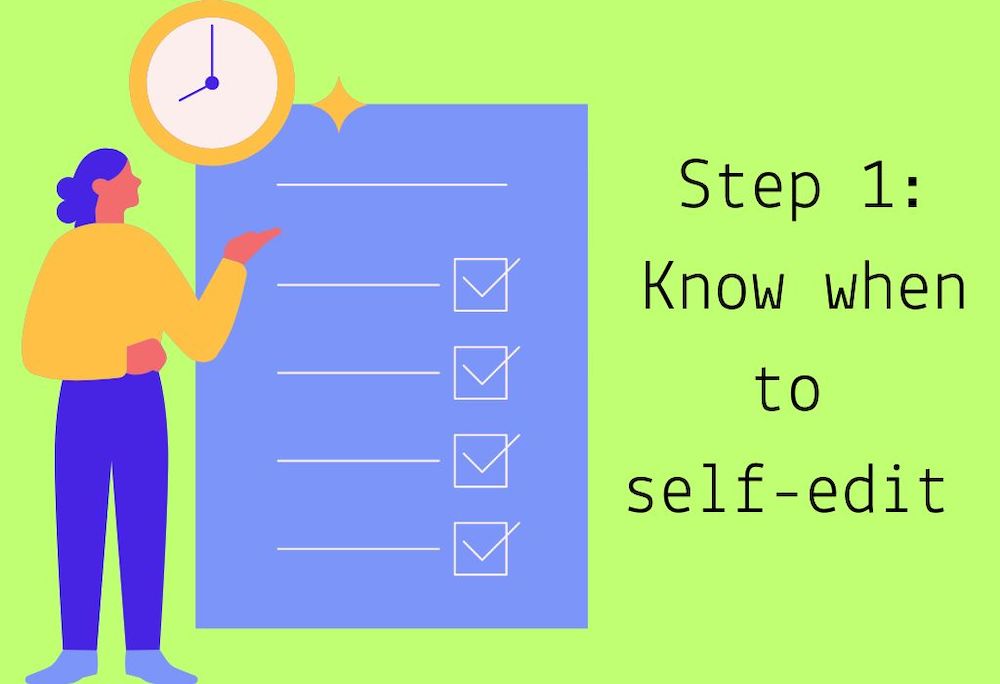
Step 1: Know why (and when) you need to self-edit
Editing isn’t a requirement for self-publishing; pretty much anyone can self-publish anything, whether it’s edited or not. However, if you want to stand out and have readers take you seriously, you need to become an excellent (and ruthless) self-editor.
Editing is a largely invisible part of the process of writing and publishing a book. And, at times, it can feel thankless. When done well, no one will take note of it. But, readers will notice even the smallest plothole, typo, or grammatical error. A lack of editing will break your readers’ immersion and tell them that you just don’t care enough about your story to edit it. And if you don’t care, why should they?
Excellent self-editing doesn’t just apply to self-publishing. It’s a skill you need when you query literary agents, too. First of all, you should never send an unedited manuscript to an agent. Not only will you not be taken seriously, but your book most likely won’t even make it out of the slush pile.
While your manuscript doesn’t have to be perfect to get an agent’s attention, it does need to look as polished and professional as you can make it. There’s a lot of competition—both in self-publishing and traditional publishing—so, don’t blow your chances by putting an unedited manuscript out into the world!
Step 2: Don’t mix writing and editing
Every writer’s approach is different, however, it’s rarely a good idea to edit your book as you’re writing it. You risk slowing down your writing process, getting stuck in a never-ending editing loop, and not finishing your book.
Here at The Open Book Editor, we’ve encountered writers who could not progress until they felt each chapter was perfect. The result? Years of working on their books without ever finishing them. However, with the help of a professional editor or author coach, these writers felt they were able to get out of this rut. They could focus on finishing their first drafts before beginning the editing process!
This is why it’s so important to look at writing and editing as two separate, but essential, actions. Don’t let yourself get bogged down by perfectionism. Instead, focus on pushing through and finishing your first draft. Once you’re done, you can hone all your focus on edits, without the distraction of figuring out your plot and how to craft the perfect ending.
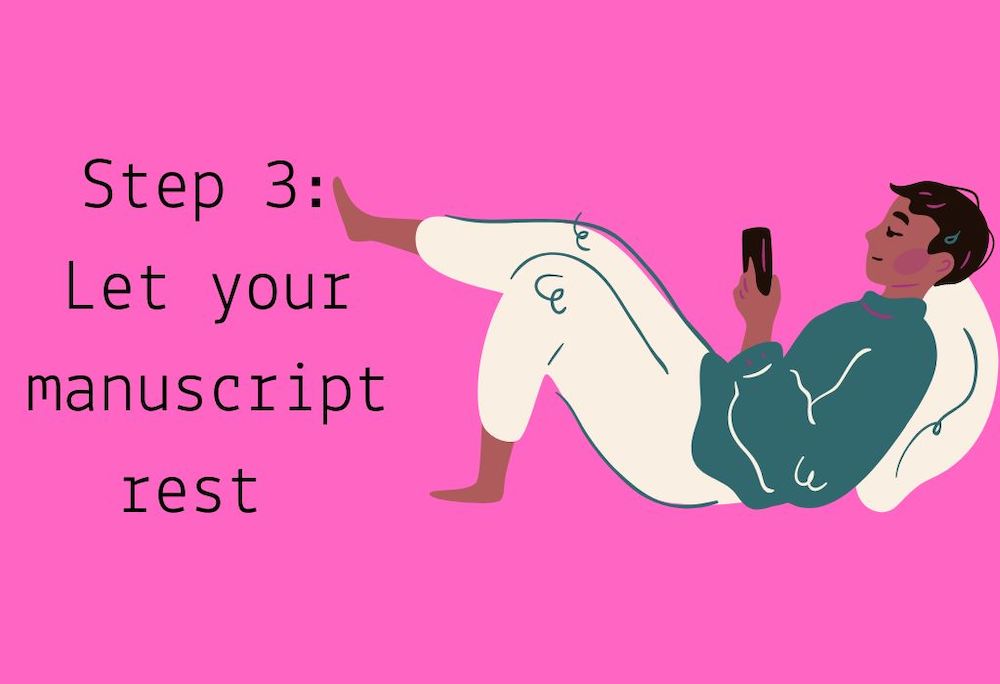
Step 3: Let your manuscript rest
It can be tempting to jump right into editing your manuscript once you’ve finished the first draft—especially if you feel you’re on a roll with your book! But part of being an excellent self-editor is knowing when to take a break. Time away will help you to develop objectivity and spot issues with your manuscript more easily. And your book will be better for it!
So, how long should you let your book rest? This can vary from writer to writer. Stephen King suggests six weeks, while other authors say two months is the right benchmark. At the very least, aim to let your book rest for a month. In the meantime, start outlining your next project, read a book in your genre, or begin putting together your querying package!
Step 4: Focus on the big picture first
After you’ve let your manuscript rest, it’s time to begin your first round of big picture edits. Sit down and read your manuscript all the way through. Take notes as you go and ask yourself these questions:
- Do you have a gripping opening chapter? You have limited time to grab a reader’s, agent’s, or editor’s attention, so be honest with yourself about whether your first chapter makes you want to read on.
- Do you introduce your main character or characters as soon as you can?
- Does each scene move the story along? If it doesn’t, you need to cut it.
- Does your main character have a clear arc from start to finish?
- Are there any plotholes? Does your story’s progression make sense? This is something pantsers in particular should pay attention to!
- Do you have the right amount of conflict? Conflict drives the story, but be careful about having too little or too much. And make sure your conflict has some sort of resolution at the end!
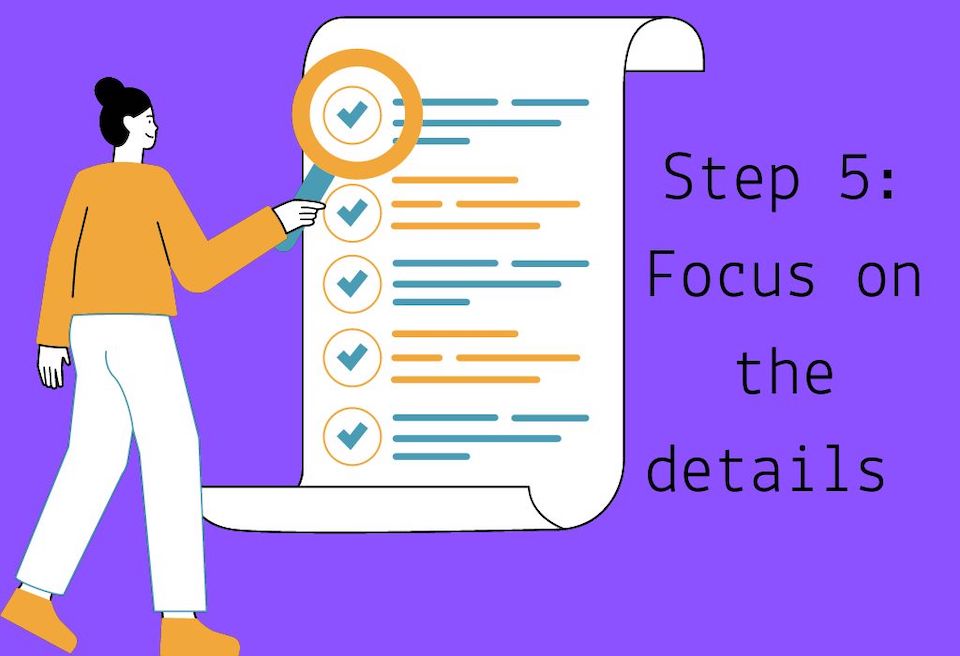
Step 5: Focus on the details
Once you’ve tweaked the big story edits, focus on the smaller details of your book:
- Are you telling instead of showing? For example, instead of saying, “Gary was sad”, describe Gary struggling to get out of bed, not being able to eat, or behaving listlessly at work.
- Are you using all the senses? Don’t just focus on sight and sound. Try to incorporate touch, smell, and taste, too!
- Do you repeat information too much or not relay it enough? It’s important to find a balance where you’re giving your reader the information they need, without coming across as repetitive or redundant.
- Are you starting and ending your scenes in an engaging way? Part of writing a captivating novel involves knowing how to begin and end your scenes. This can include incorporating cliffhangers, unpredictable twists, or gripping character development into your scenes.
- Do you have enough action? Make sure there’s action happening in each chapter that drives the plot forward; i.e., give your characters something to do in each scene. Be careful of adding too much action into your book, though! Non-stop action can be overwhelming for readers.
- Do you have too many adverbs? Overuse of adverbs will only weaken your writing. For example: “Emily slammed down her mug angrily”. The adverb here is redundant as the action of slamming down her mug already tells the reader Emily is angry.
- Are you using crutch words? Examples of crutch words to avoid:
- Up and down — For example, “he sat down”. The reader already knows it’s ‘down’. It’s cleaner and stronger just to say “he sat”.
- Really and very — These are usually unnecessary.
- Mannerisms in dialogue attribution — Try to stick to “said” as much as possible so your dialogue feels natural. Dialogue attributions like “he wheezed, retorted, grunted, etc.” make for weaker writing. People say things, they don’t grunt them.
- Are you using specific language? More specific language can lend more colour and strength to your writing. So, for example, instead of “cat” say “tabby” or instead of “drink” specify “green tea”. These small, specific details can tell you more about a scene or a character.
- Are you using passive voice? Make sure your characters are doing things instead of having things done to them. For example, instead of “The book was written by the author”, you would say “The author wrote the book”.
Step 6: Copy-edit for consistency
Copy-editing is a major step you should not skip if you want to be an excellent self-editor. This is the part of the editing process where you comb through your manuscript and check for grammatical and factual errors. You want to eliminate typos, punctuation mistakes, and grammar issues, as well as check for inconsistencies in your writing.
Consistency plays a huge role in the copy-edit portion of editing, so you’ll need to pay attention to details here. For example, do you start multiple consecutive sentences with the same word or character name? Do you use ‘whisky’ in some parts of your novel, but spell it as ‘whiskey’ in others? Do you change tenses or POVs mid-chapter?
It can help at this stage to read your book out loud. This will trigger a different part of your brain so it’s easier to pick up on inconsistencies!
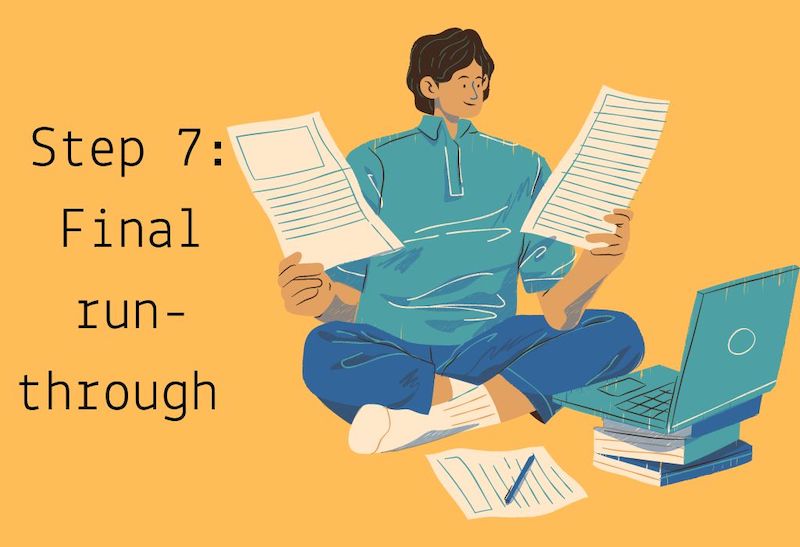
Step 7: Do your final run-through
This is your final step in the self-editing process…for now! At this stage, you’re simply tidying up any mistakes you might have missed in earlier rounds. You’ll want to check for spelling mistakes, stray punctuation, and other typos. This is also a good time to properly format your manuscript, whether you plan to query or self-publish!
What’s next after this? Well, you’ll set your manuscript aside for a few weeks to rest and do it all again! Two solid rounds of self-editing should be enough before you pass it on to a professional book editor or send it off to beta readers.
How do I know my manuscript is ready?
It can be hard to know when you’re ready to query agents or hit that self-publish button. It’s natural for even an excellent self-editor to miss mistakes in their manuscript—especially after reading it multiple times. This is why getting new, objective eyes on your book is so important. If you haven’t already, join a writing group and ask other writers to beta read your work. Or consider hiring a book editor to edit your manuscript.
Read up on the different types of edits to see which kind of editing—developmental, copy-editing, or proofreading—will serve your book best. But remember, don’t just rely on a professional editor to polish up your book for you. Becoming an excellent self-editor requires hard work, patience, and attention to detail, but it is an invaluable and worthwhile skill. You’ll walk away from the process feeling a sense of accomplishment and become a better writer, too!
